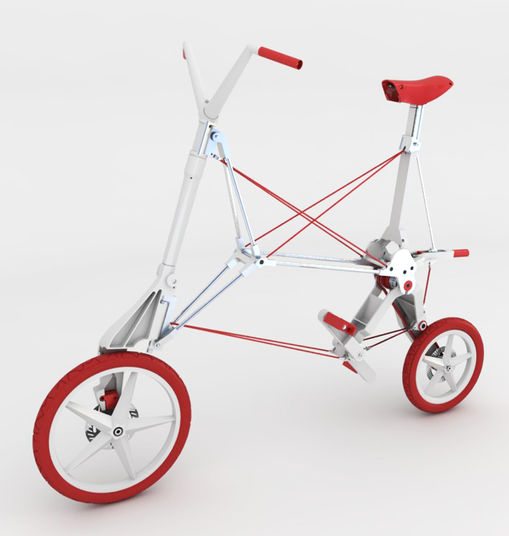THE INTERMODAL BIKE
Folding super-compact bike
General Info
Project - Wp Ergonomics
Multi-modal Integration of cycling mobility through product and process innovations in bicycle design.
Funding:
European (7th RTD Framework Programme) - FP7 - SST "Bike Intermodal"
Period:
2010 – 2014
Project director
Alessandro Belli - Urban Technologies, Italy
Scientific Responsible of WP Ergonomics
Francesca Tosi - University of Florence - Department of Architecture DIDA
Team of WP Ergonomics
Alessandra Rinaldi (Scientific Coordinator)
University of Florence - Department of Architecture DIDA
Alessia Brischetto (collaborator)
University of Florence - Department of Architecture DIDA
With
Grazia Tucci and Valentina Bonora
University of Florence - DICEA Dep., Laboratory of Geomatics for Conservation GECO
Vincenzo Cupelli, Giulio Arcangeli, and Marco Petranelli
University of Florence - Department of Experimental and Clinical Medicine, Health Services Research Section
Partners
Trilix, Italia - Ticona, Germany - Maxon Motors, Switzerland - ATAF, Italy - LPP Ljubjana, Slovenia - Urban Technologies, Italy - University of Florence - Department of Architecture DIDA
PROJECT DESCRIPTION
General Objective
The research project, funded by the European Union within the 7th Framework Programme, was aimed to design a folding bike, super-compact and super-light with electrically assisted pedaling, that is an efficient means of transport for the urban mobility.
The work starts from the idea that the synergy between the bicycle as a means of urban transport and public transport systems (train, tram, metro, bus) and / or private means of transport (taxi, car) can increase the modal share of bicycle on the total of urban and suburban travels, and also can have an effect to discourage the use of private cars in city centers.
The contribution of the Ergonomics & Design Laboratory (LED)
The WP Ergonomics provided acceptable range of possible posture configurations, to ensure maximum pedaling efficiency, to protect the spinal column, neck and arms from the effects of stressing, and to ensure the effectiveness and control of the vehicle.
Furthermore, it was evaluated and optimized the product usability as perceived and real comfort and pleasure, both during the pedaling action and that transportation, and in relation to the product context of use.
The project website:






